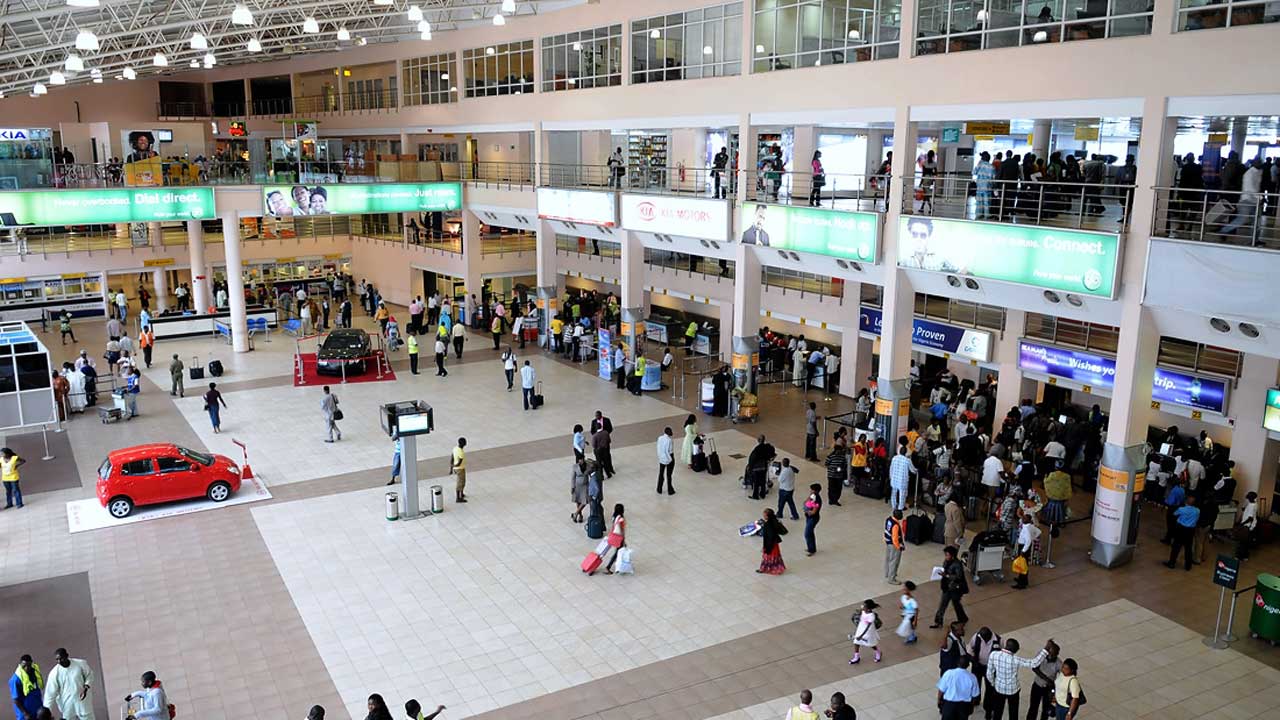- Lagos May Lose Slot as Second Busiest Airport in Africa to Cape Town
The Murtala Muhammed International Airport (MMIA), Lagos, may likely lose its slot as the second busiest airport in Africa, coming second to OR Tambo International Airport, Johannesburg, because of poor aviation fuel supply and the outrageous price of the product, known as Jet A1 in the industry.
This was disclosed by CITA, a major aviation fuel supplier to Nigeria, other countries in Africa and beyond in partnership with Puma Energy.
CITA said Nigeria has capacity to supply 1 billion litres of fuel per annum but currently it only supplies 500 million litres due to the country’s inability to refine fuel locally.
The company warned that as Lagos airport continues to lose flight traffic and many international carriers fuel from neighbouring airports like Accra, Abidjan and Lome while departing from Lagos, the traffic in Cape Town is growing daily.
CITA said in partnership with Puma Energy, the fuel-selling arm of Dutch trading giant Trafigura, that it was striving to bridge the gap in fuel supply in Nigeria by supplying clean aviation fuel into the country.
Speaking during the launch of the partnership in Lagos, the managing director of CITA, Thomas Ogungbangbehe, said that as the country’s passenger traffic is projected to grow by almost 20 per cent in 2023, Nigeria would require 2 billion litres of aviation fuel per annum to meet the demand.
Ogungbangbe expressed concern over the fact that airlines operating in Nigeria go to Ghana to refuel as a result of inadequate supply and the high cost of aviation fuel.
“The jet fuel sector has grappled with challenges – not devoid from the challenges experienced by the Nigerian larger economy, a situation that in recent times led to airlines having to stop-over in other countries for jet fuel.
“As soon as the downward slide of crude oil prices became a continuum, some market indices became confused, foreign exchange became scarce and expensive, so jet fuel price was going down in the international market but the local market was steadily going up.
“Because of this, hedging became difficult as futures and spot prices became lower than the present selling price,” he said
He recalled that on November 6, 2014, the Central Bank of Nigeria (CBN) threw jet fuel out of the RDAS, in so doing excluded an essential product that is not produced in Nigeria.
He explained that overall, the trading conditions faced by CITA were not showing any signs of improving, as the deterioration in the market was accelerated by the exit of some foreign airlines and receivership of airlines that held about 70 per cent of the traffic.
“We could not take money from banks in Nigeria to fund transactions, and even when there was money, there was no forex to import the product.
“With this constantly changing market, there is need to plug into dynamics of well integrated organisations whose system is not thrown to shocks by economic situations of any one country or region.
“I strongly believe it’s even more important – now while we’re enduring an economic crisis – that our airlines fully utilise the benefits of this type of business relationship,” he said.
He urged the federal government to remove all the bottlenecks that hamper aviation fuel supply in the country.
Speaking in the same vein, the Global Aviation Fuel Manager of PUMA Energy, Seamus Kilgallonsaid, said Lagos is second biggest airport in Africa but it may lose the position to Cape Town because of high price of aviation fuel.
Kilgallon said Nigeria needs to smoothen the supply system to prevent occasional scarcity of aviation fuel, leading to high and arbitrary increase in prices, which is said to be the highest in West and Central Africa.
He added that the new partnership between CITA and PUMA promises to bridge these challenges.



 Naira4 weeks ago
Naira4 weeks ago


 Naira3 weeks ago
Naira3 weeks ago


 News4 weeks ago
News4 weeks ago
 Travel4 weeks ago
Travel4 weeks ago




 Naira4 weeks ago
Naira4 weeks ago


 Jobs3 weeks ago
Jobs3 weeks ago
 Naira3 weeks ago
Naira3 weeks ago


 Travel3 weeks ago
Travel3 weeks ago




















